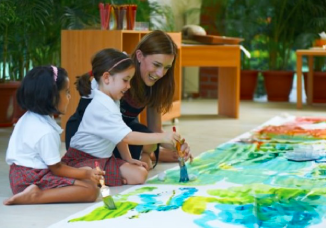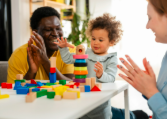In early childhood education, art is more than just a creative activity—it’s a journey of discovery, self-expression, and growth. One of the most meaningful approaches to art in the classroom is focusing on the process rather than the product. This means valuing what children experience, feel, and learn during art-making rather than how the final piece turns out.
Why the Process Matters
When children engage in open-ended art activities, they explore materials, experiment with ideas, and make their own choices. This hands-on process allows them to:
-
Develop fine motor skills through cutting, gluing, and painting
-
Build confidence as they express their thoughts and feelings
-
Learn problem-solving by figuring out how to represent something visually
-
Practice patience and attention to detail over time
These benefits are not always visible in the final artwork—but they’re deeply embedded in the child’s experience.
Encouraging Creativity Without Pressure
When adults focus too much on the finished product, children may feel pressured to meet expectations. This can limit their creativity and lead to frustration. On the other hand, process-based art gives children permission to try new things, take risks, and enjoy the moment. A blue sun, a scribbled sky, or a finger-painted forest may not look “perfect,” but they reflect a child’s imagination and authentic experience.
What Process-Based Art Looks Like
Process-focused art often includes activities like:
-
Mixing colors to see what new shades appear
-
Creating collages with different textures and shapes
-
Painting freely with brushes, sponges, or hands
-
Building with recycled materials without a set outcome
There are no right or wrong results—just exploration, expression, and fun.
How Teachers and Parents Can Support
Adults can nurture the process-over-product mindset by:
-
Asking open-ended questions like “What do you like about your picture?”
-
Displaying children’s artwork without judgment or comparison
-
Offering a variety of materials and letting kids take the lead
-
Praising effort, curiosity, and creativity rather than neatness
By shifting the focus to the process, we send a powerful message: Your ideas matter. Your effort is important. Your voice is heard.
A Foundation for Lifelong Learning
Celebrating the process helps children feel proud of what they do, not just what they make. This mindset carries into other areas of learning and life—encouraging persistence, flexibility, and a love of exploration.
In the end, art becomes more than just a craft. It becomes a meaningful part of how children understand themselves and the world around them.


